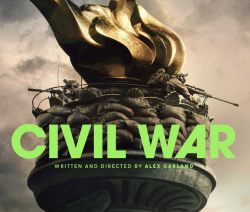“You’re going to be a fine hunter someday,” prophesies Chris Kyle’s father at the outset of Clint Eastwood’s American Sniper, an adaptation of Kyle’s autobiography of the same name. Coming on the heels of two wars at a time when the gap of understanding between America’s civilians and armed forces is growing, the film provokes essential questions. But neither the quality of Eastwood’s directing nor the strength of Bradley Cooper as Kyle, the most decorated sniper in U.S. Navy SEAL history, outweigh its fear of answering them.
The film follows Kyle through four tours of duty in Iraq, spanning key campaigns in Fallujah, Ramadi, and Sadr City, alongside interstitial visits home to his wife, Taya (Sienna Miller), and kids in Texas. Throughout, the yawning gulf between soldier and civilian, and the challenges of reintegrating into domestic life while one’s comrades remain on the front lines, looms large.
The film maintains a complicated relationship with its eponymous subject. In Cooper’s capable hands, Kyle comes off incorrigibly likable, dutiful, and undeniably heroic. But through the mouthpieces of his fellow soldiers and his wife, the film questions his all-consuming patriotism, prejudice (he labels Iraqis “savages”), and persistent denials of PTSD—war’s good alongside its bad.
But this complex relationship isn’t always to the film’s credit. At American Sniper’s heart is a fundamental identity crisis: what begins as a biopic depicting Kyle’s virtues and foibles ends as a eulogy. In a too-pat aesthetic cop-out, the enemy Kyle conquers is both his embodied antithesis, a deadly and highly fictionalized insurgent sniper named Moustafa, and the insurgent within, the patriotic fever that keeps him reenlisting, absorbs his thoughts, and neglects his wife and children. “I’m ready to come home,” he tearfully admits to his wife via cell phone during the film’s climactic firefight and, having slain his foe with a record-setting 2,100-yard shot, come home he does.
As history knows, however, reality resolves far less neatly. The consequences of the Iraq War still ravage, its legacy as complicated as Kyle’s own. In ways too harrowing to ignore, but in a manner too ham-handed to feel entirely genuine, American Sniper metonymizes Kyle’s story as that of the war—its successes, failures, frustrations, and lessons learned and unlearned. But as Kyle’s tragic murder at the hands of a fellow veteran approaches, the film backs down, whitewashing its protagonist into a reformed husband, family-man, and selfless volunteer for wounded warriors whose post-traumatic struggle with what he has seen and done is entirely behind him.
American Sniper opens in Fallujah, with Kyle squinting down his scope at a mother and child. When last he aims a gun on screen, however, it isn’t a rifle tracking insurgents but a pistol trained on his wife in the kitchen of their Texas home while his kids play in the next room. “Drop them drawers,” he drawls, “slowly.” The moment exemplifies everything the film leaves out: a celebration of intimate humor without the willingness—or maybe the bravery—to explore the possibility that when the deadliest warrior in U.S. military history points a gun at a loved one, however jocularly, some demons persist.
Ringing with the adulatory cheers of crowds lining a miles-long funeral procession, American Sniper dodges answering the very questions it poses, through Kyle, about wartime morality, taking and protecting life, and America’s relationship with its military. Perhaps this country isn’t yet ready to ask such questions—of its heroes, least of all. But honoring a memory means, first and foremost, understanding clearly. The real Chris Kyle, flaws included, lived courageously. American Sniper, despite its promise, ends in cowardice.




